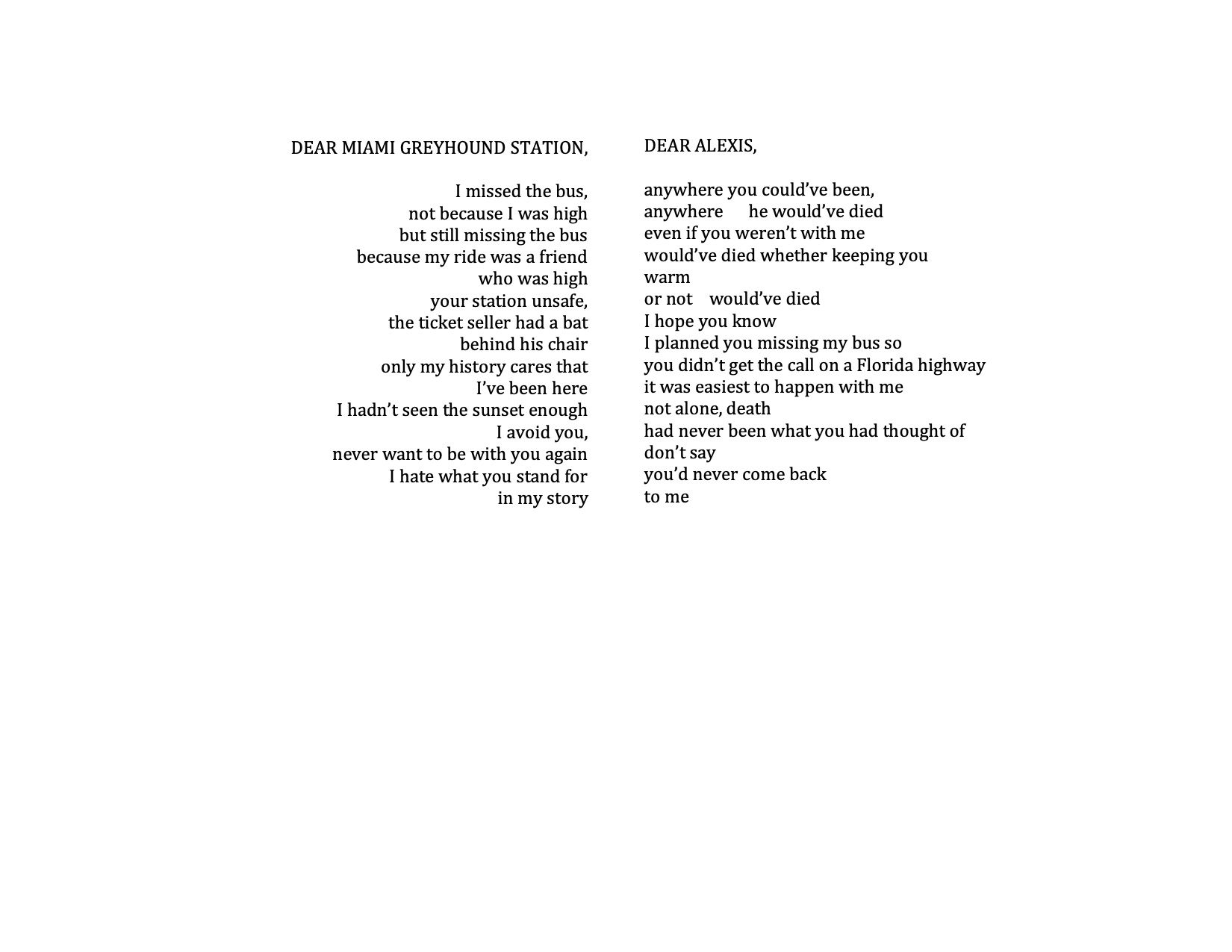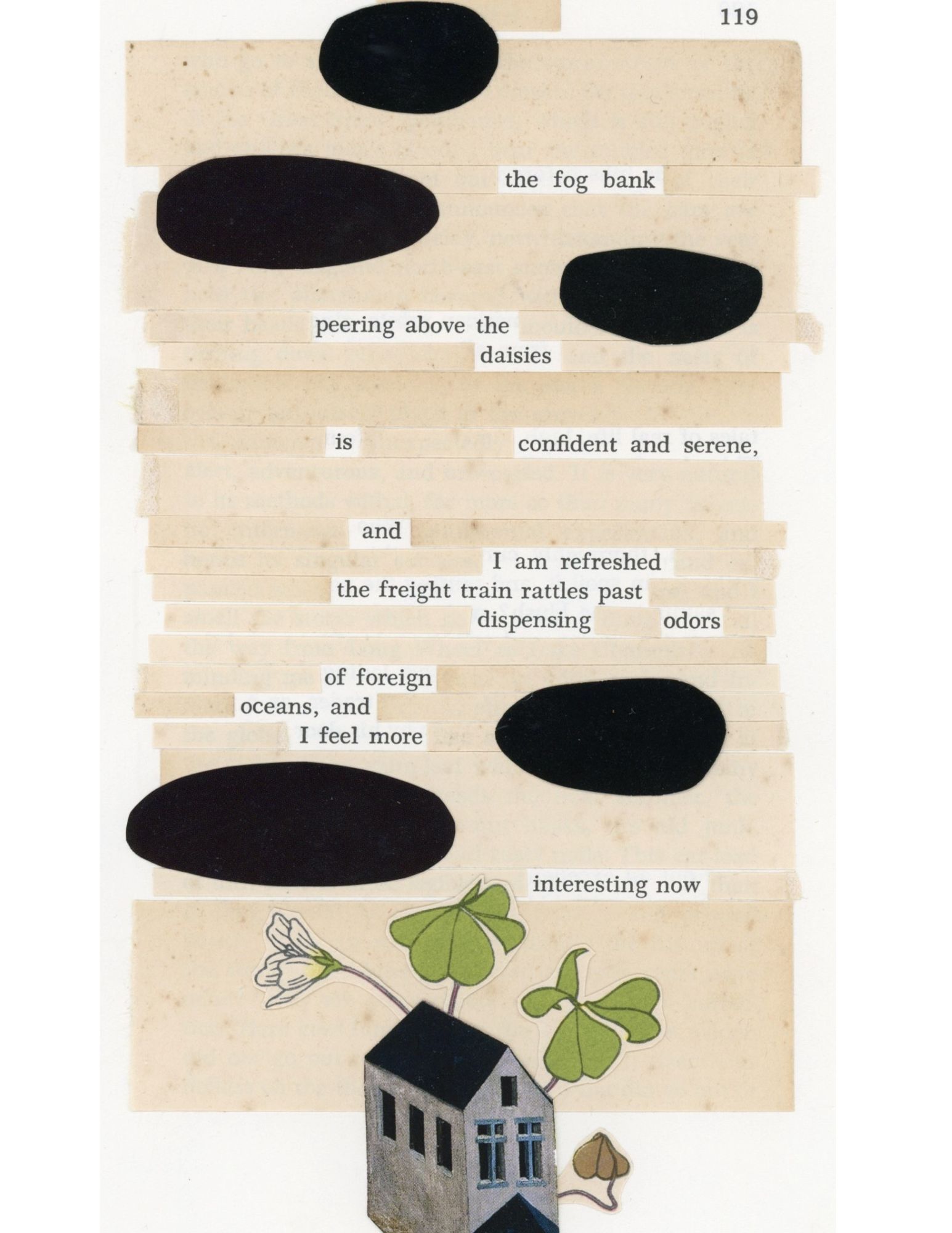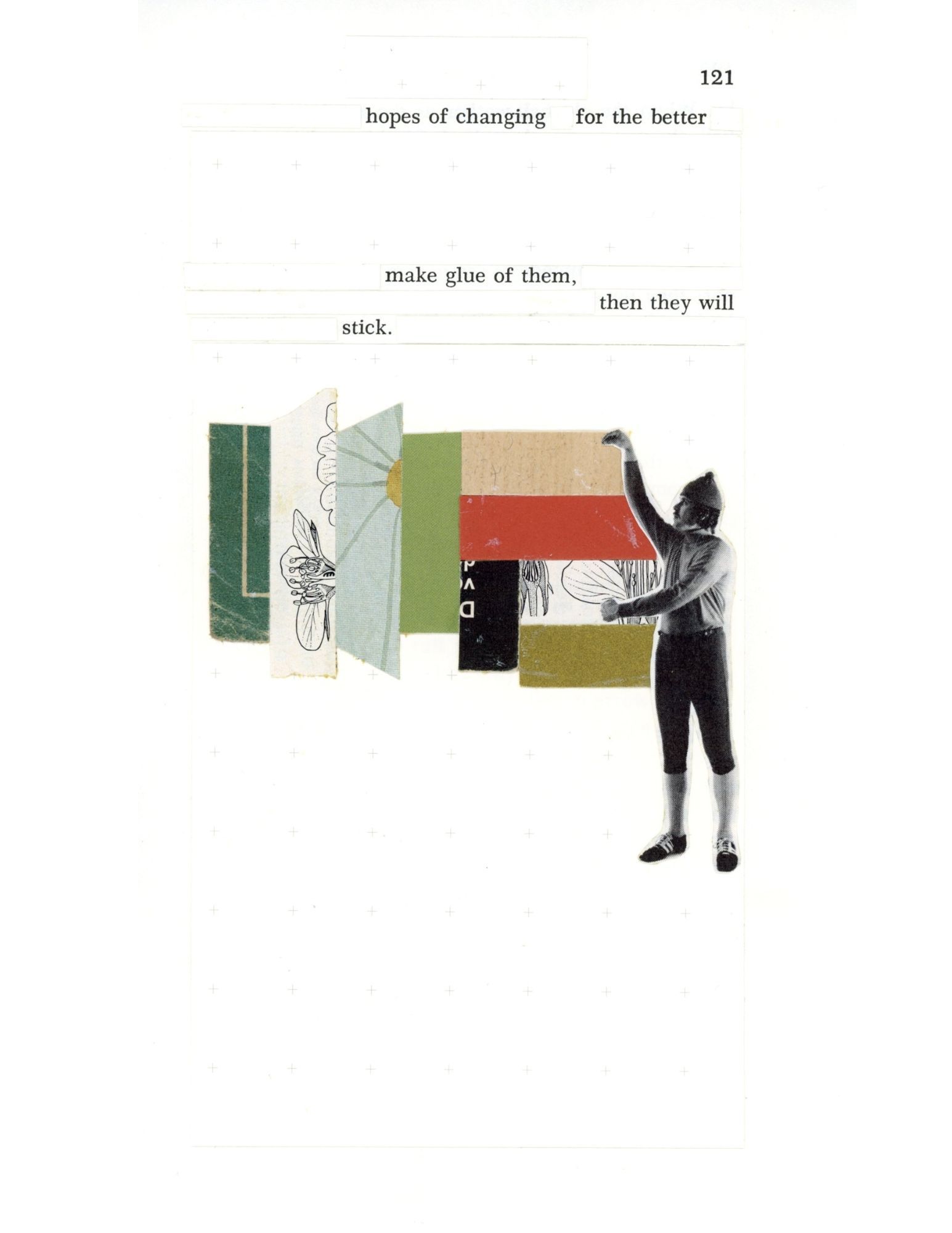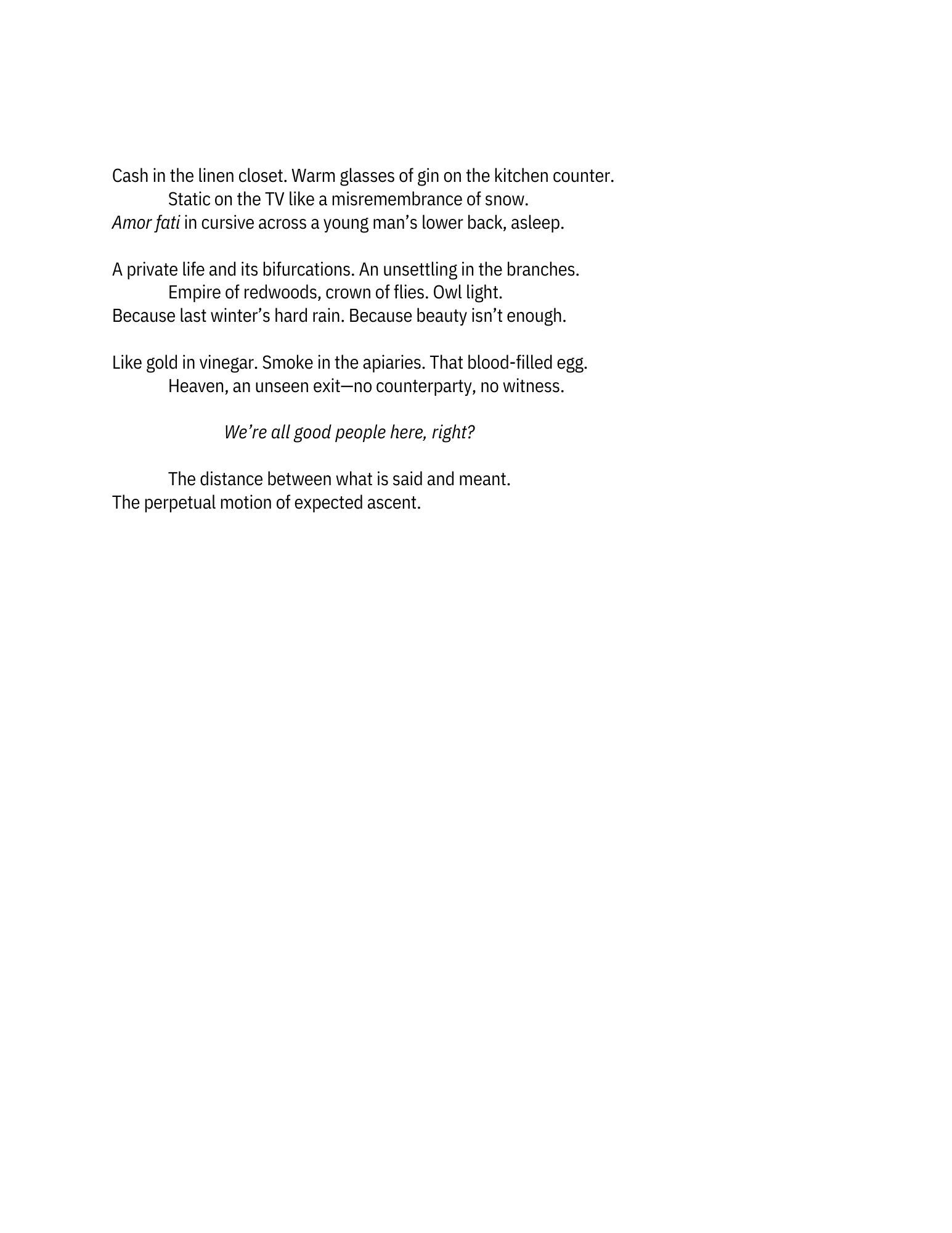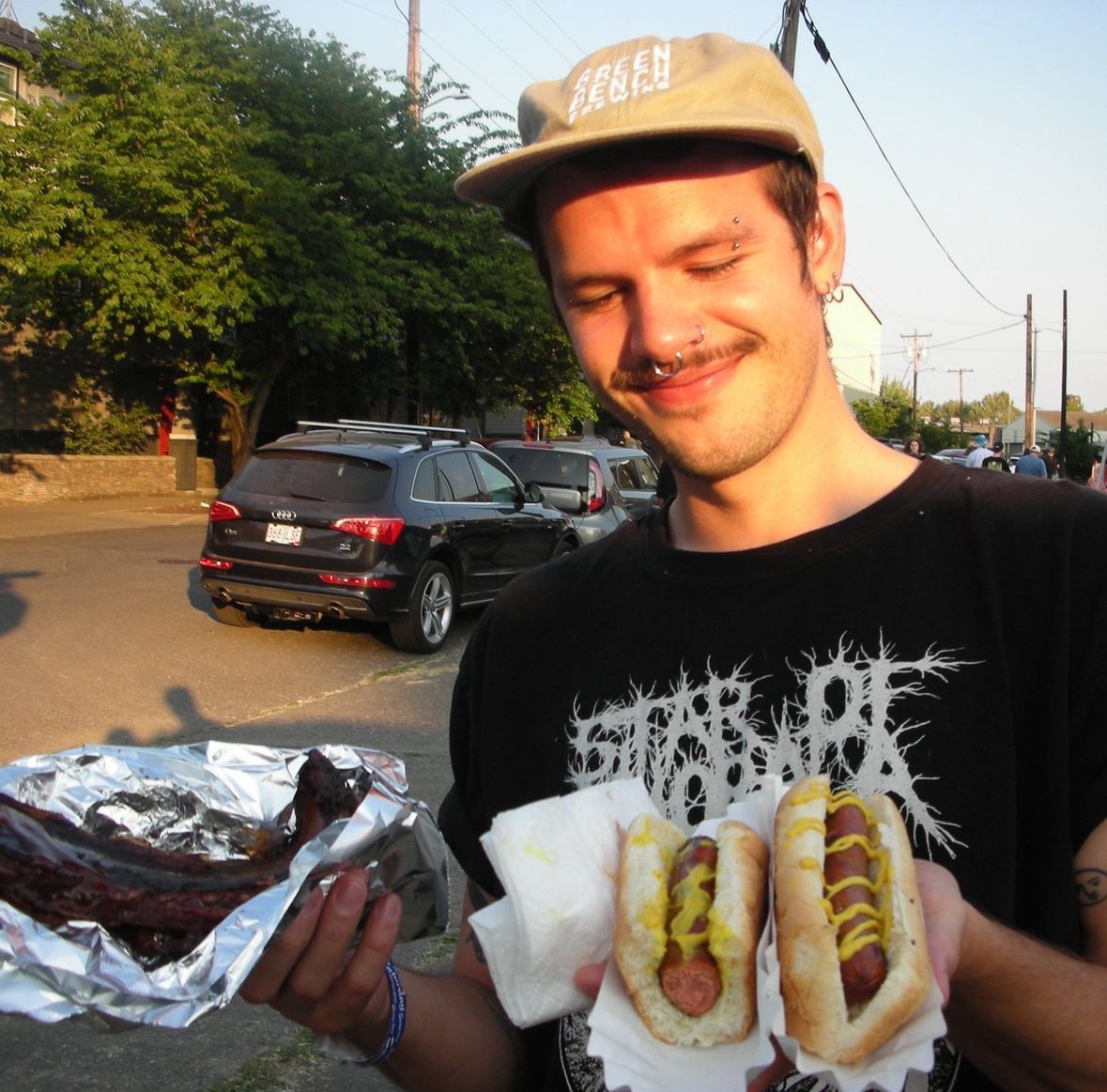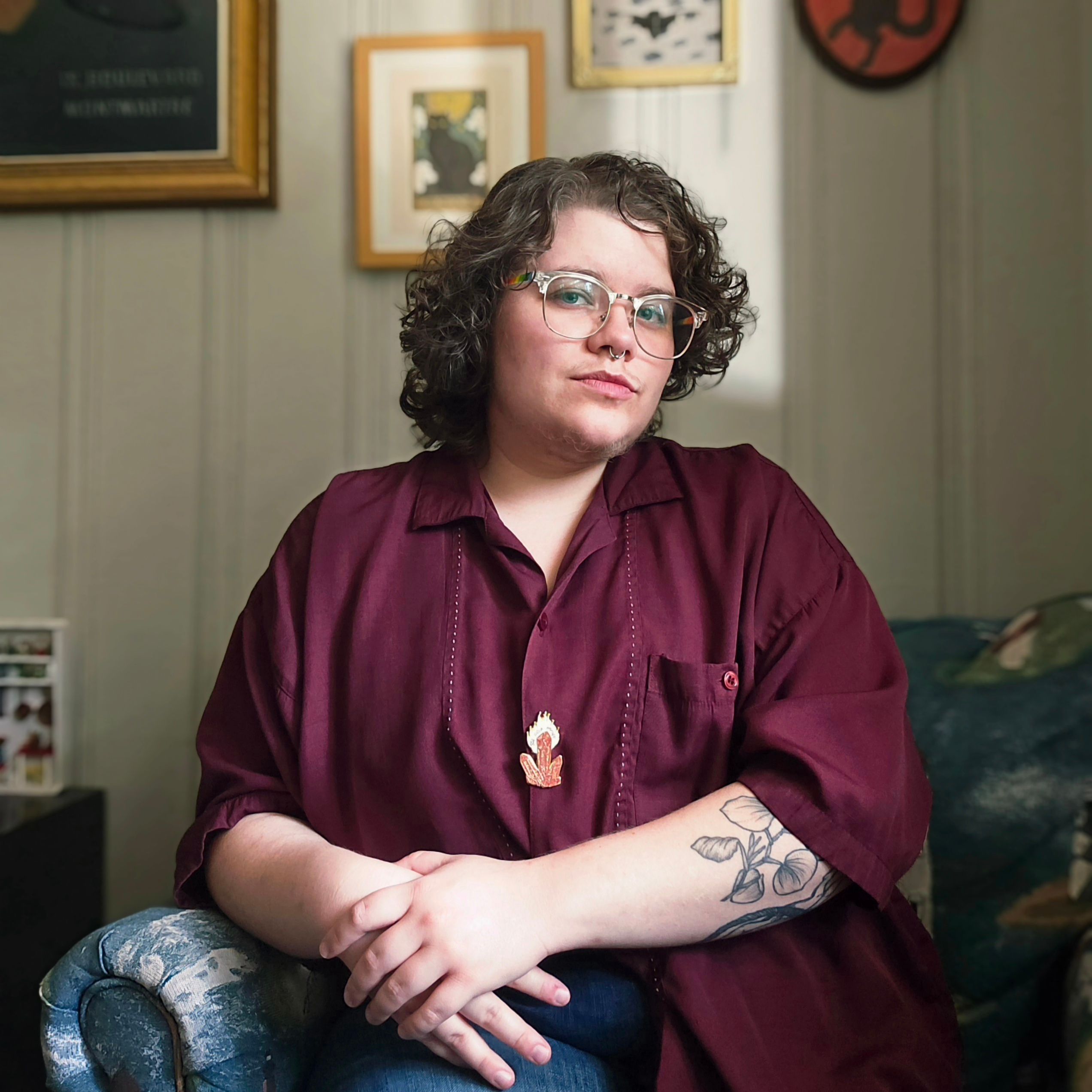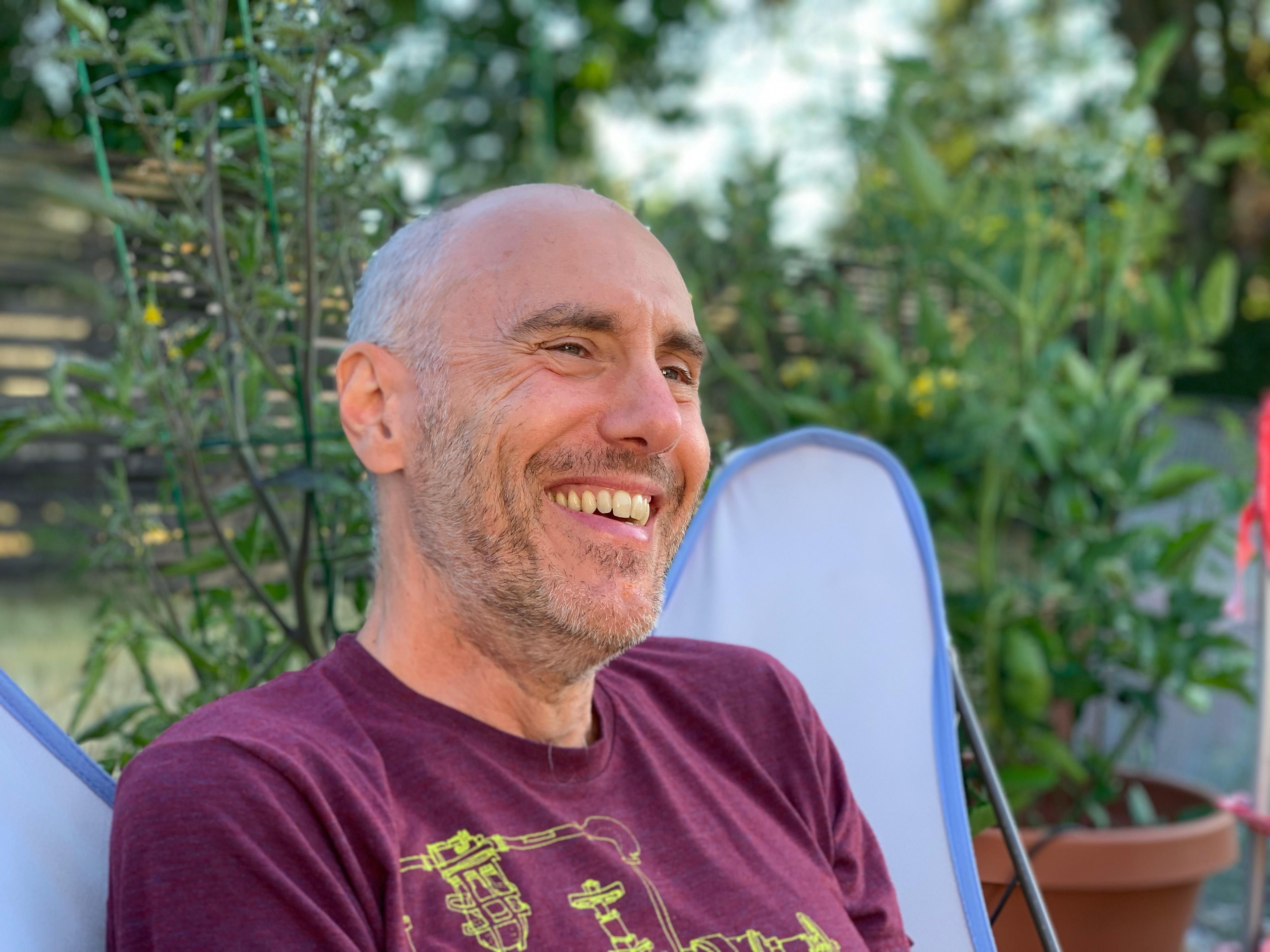The girl has begun to stomp sidewalk anthills
with her delicate and dimly probing feet.
Bewildered insects swarm like static
broadcast through destroyed cities.
I’m thinking of actual cities, of Orson Welles
and his radioed apocalypse driving families
frantic into the street with damp rags pressed
to their mouths. And nothing but a low-hung sky
when they get there. Nothing but the last
tired clutches of autumn, a kestrel casing
the cul-de-sac. If they were afraid of losing
something then it was because this was the first time
they realized they had it. It’s baffling how used
to being alive you can get. When I was her age
I watched fields pull past the school bus window
and wanted to know something about how
other people did it: the tall boy committing
a summer to his neighborhood’s lawns for some
indecipherable hourly rate, a bank teller engrossed
in opening rituals, someone prepping vegetables
in a strip mall pizza closet. From beneath each
of their sweat-lacquered brows, embossed awnings,
cursive neon placards: I’m still looking up. In Babel
it was the tower, destroyed because no one
who wanted it could understand one another.
No one could stop their fevered bricklaying, turn
to whomever at their shoulder and say Yes. I believe
this can be as great as you do. But we’re mired
on this sidewalk in our parallel backstrokes through
responsibility. And I love her, this girl who looks up
as if to ask me to tell her what she’s doing. Or to stop.
But I am drawn away toward the sky, a fresco
of gathering clouds. She tugs my sleeve to turn,
an alley—we’re on our way to destroy something else
by misunderstanding it. Her pink galoshes
map a mess to the maw of the storm.
Jess Williard
Author
Jess Williard is the author of Unmanly Grief (University of Arkansas Press, 2019).

